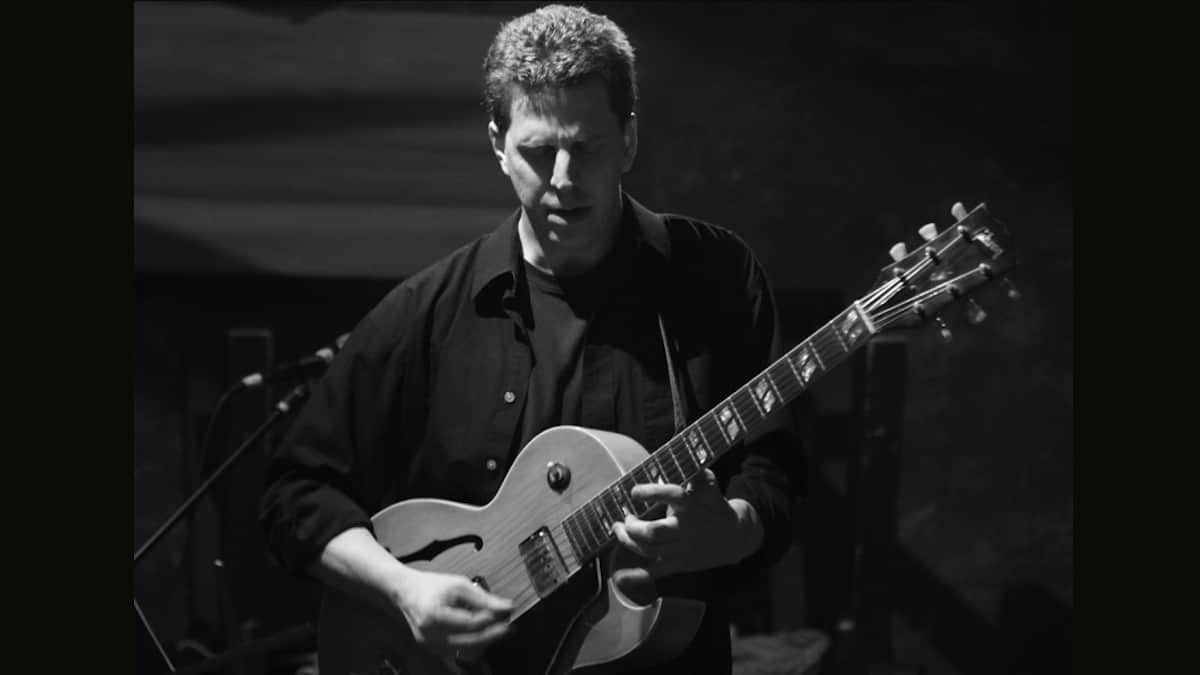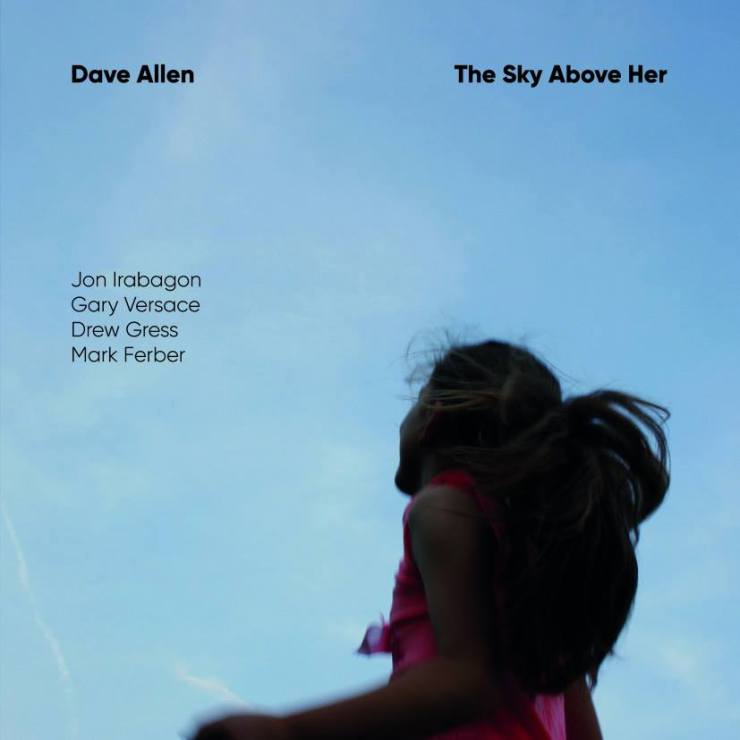Artist Features
Guitarist Dave Allen and ‘Advanced Rhythmic Concepts for Improvisers’

Jazz Guitar Today contributor Tom Amoriello talks to guitarist, bandleader, composer, and educator Dave Allen about his forthcoming publication.
Fresh Sound Recording artist Dave Allen has served a sophisticated palette to discerning ears on full-length releases such as Untold Stories, Real and Imagined, and The Sky Above Her. The bandleader, composer, and educator will soon make a contribution to the jazz music education library with the forthcoming publication of Advanced Rhythmic Concepts for Improvisers with the blessings of Mel Bay Music. The Philadelphia native spent much of his career on the New York scene first as a student enrolled at the Manhattan School of Music and later into adulthood with the city’s most respected bandstand musicians. Currently, Allen is a Senior Lecturer on the guitar faculty at the University of the Arts where he earned his graduate degree. Allen sites Jim Hall, Abercrombie, Metheny, and many non-guitarists like Wayne Shorter, Keith Jarrett, and Bartok his top influences. Jazz Guitar Today would like to thank Mr. Allen for this exclusive interview.
JGT: Your new book, “Advanced Rhythmic Concepts for Improvisers” will be published by Mel Bay in 2021. Please take us through a chapter or what a potential student can take away from your method?
The material in the book originally developed out of my compositions. My pieces tend to have rhythmic challenges to them, especially a use of odd or mixed meter improvisation. I often get questions about how to play these kinds of rhythmic ideas and have them feel natural. I wanted to provide an approach that would let players become more familiar with these ideas through learning particular claves, bass lines, and comping patterns, which would be a guide to understanding, in a physical sense, how to navigate through them. The book has over a hundred audio samples, many of them are tracks that act as play-alongs. Thirty of the tracks include a rhythm section. It covers time strenghtening workouts for metronome, polyrhythmic sequences, rhythmic layering, and then there are multiple examples of grooves in every meter for the student to improvise with. There are also some full compositions which feature shifting meters. I hope the material will help musicians get past counting and move toward feeling the rhythms more naturally. The goal is always to make it feel as flowing and natural as possible, so that the word “odd” no longer applies.
JGT: You are currently a senior lecturer at The University of the Arts in Philadelphia. What skills do you expect a student to possess at an audition and what are the ensemble opportunities that students can expect on campus?
I think the main thing I always look for in students is that they should be hungry to learn and have a capacity for focused work. If they have those things, everything else usually comes together with time (no pun intended). It certainly helps if they are already working at the fundamentals. The UArts program has a lot to offer students. I am in the process of creating three new classes: Advanced Improvisation, Advanced Rhythmic Concepts, and an intensive listening class. There are various ensembles which give the students chances to play and perform in different styles. It’s a positive environment and there are many good musicians on the faculty. I’ve had some very talented students there.
JGT: You were a prodigy recognized by Guitar Player Magazine at the age of 16, what was your early guitar practice and lessons like in your youth?
I wouldn’t agree with the term prodigy, because it was not like I just started playing and knew what to do. I did a lot of practicing, and a lot of musical searching. It took many years for me to find my own voice. I became obsessed with music at 14. I was mostly self -taught until I arrive at Manhattan School of music. I was always very interested in clarity and flow on the instrument, which are probably still the most important things to me. I spent a lot of time trying to develop those qualities. As a composer, I found that the music I was writing was always challenging to improvise on, both physically and mentally. For whatever reason, I love things that are difficult. Difficult in the good sense of the word, which means trying to make them sound easy. The compositions always pushed me forward, and they still do. I wrote quite a lot of music during this pandemic, and a good part of it uses ideas I haven’t explored before. There is always the question: “Can I pull this off live?”. But then, there is no alternative.
JGT: As a bandleader, please tell Jazz Guitar Today readers about the Dave Allen Quartet and what you admire about how the members interpret your compositions on piano bass drums.
I was very fortunate to live in New York City for 25 years and was able to play with some of the best players in the world. I was always composing and leading my own projects, which meant I could experiment with different players on different gigs. For a while I had a band with Mark Turner, Drew Gress and Jeff Ballard which was a blast. The core of my group for the past 15 years has been Drew Gress on bass and Mark Ferber on drums. Anything I write they can make into an adventure. There were also many great saxophonists coming through the group like Seamus Blake, Donny McCaslin, and Miguel Zenon. My latest recording “The Sky Above Her” features Gress and Ferber along with the amazing Gary Versace on piano and Rhodes and the great saxophonist Jon Irabagon. They are all monsters and brought the music to life like only they can.
JGT: Do you care to promote any other happenings that we can look forward to for 2021?
The book will come out in the Fall (Mel Bay). Due to the pandemic, there are no concerts planned, but I do plan to do some streaming concerts of the new music. I also teach online workshops and private lessons by video. I hope to make a new record as soon as possible and document this new music that has emerged from this quarantine period.
-
Jazz Guitar Lessons2 weeks ago
New JGT Guitar Lesson: Analyzing “Without A Song”
-
Jazz Guitar Lessons4 weeks ago
New JGT Guitar Lesson: Considering “Falling Grace”
-
Artist Features1 week ago
New Kurt Rosenwinkel JGT Video Podcast – July 2024
-
Artist Features2 weeks ago
JGT Talks To Seattle’s Michael Eskenazi





















